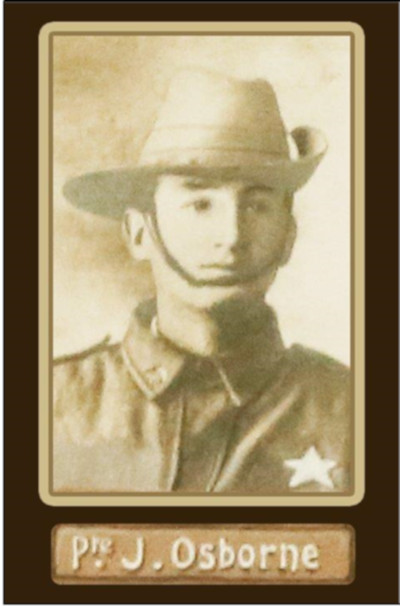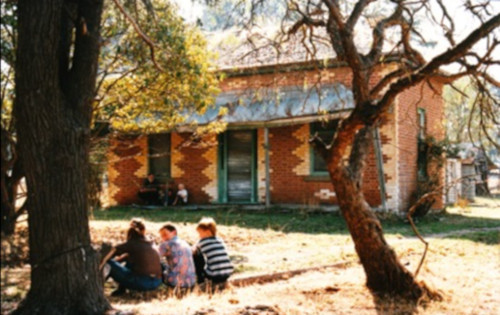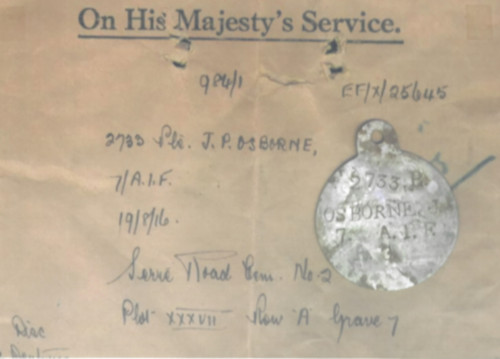Jim Osborne was born in 1879, the son of Irish immigrants who had settled in the mining town of Walhalla. His was a traditional upbringing of the time, numerous siblings and attending school. Through his teenage years he enjoyed the local cricket ground, playing both cricket and football. Jim saw the introduction of electricity and the telephone in his formative years. Reaching employment age, he went to work as a battery hand at the mine in Walhalla.
Ellen Osborne, Jim’s sister married William Keating from “Fairwood Park”, Beaconsfield. The family had experienced sadness with the loss of a sibling but the death of Ellen’s husband at Beaconsfield was life changing for Jim.

For him responsibility and duty called, he moved to Beaconsfield in support of his pregnant sister to manage the property she now owned, “Fairwood Park”. Jim went on to grow crops and assist his sister, immersing himself in the Beaconsfield community.

On Friday 28 July 1915 duty called again, Jim set off to Melbourne to enlist for World War One; as described the fresh faced, blue eyed, dark hair, physically fit man was accepted, and returned to Beaconsfield that day to farewell his family and friends.
The following article describes Sunday 2 August 1915:
“The accommodation of the Beaconsfield station was taxed on Sunday evening last, when the relatives, sweethearts and friends of “our recruits” assembled to give the boys an encouraging farewell on the occasion of their going into camp. The recruits who left were Messrs Arthur Bragg, Jim Osborne, Alec May, James Rix, Leslie Paternoster and John Tucker. Other recruits are already in camp. Mr Ray Thompson delivered a short address and on behalf of Mrs Paternoster, presented each soldier with a flag. The recruits were greeted with musical honours sung with zest and feeling and this was followed by the hearty singing of the National Anthem. Touching scenes marked the fare-wells, but one could not feel but impressed by the spirit of noble, unselfish devotion that dominated all present. Hearty cheers were raised as the train moved out, and hats, flags and handkerchiefs were waved until the train was out of sight”.

As we stand here today we can all imagine the heartache and overwhelming sadness the families of Beaconsfield felt waving good bye to their young men some of which were never to return.
On the 19 August 1916 “in the field”, James Patrick Osborne, Service Number 2733, Rank Private, from the 24th Infantry Battalion 1 to 8 Reinforcements was killed in action close to the frontline in Northern France.
Jim was never to return to his life in Beaconsfield, he paid the ultimate price, a man of commitment and duty forever loyal to his family and to his country; Australia.
Researched, written and compiled by Penny Harris Jennings
![]()